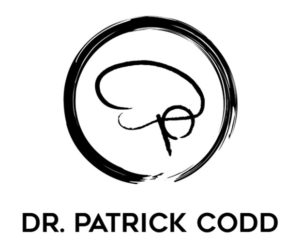
So you are about to have a surgery, and you will have an incision. What should you expect? How do you care for the area? And what are the do’s and don’t of incision care? Obviously you should check in with my team, and by no means is this all the possible recommendations, but hopefully this gives you some guidance on what to be thinking about.
What will my incision look like? Obviously everyone will be a little different, depending on the type of operation that you are undergoing. Feel free to ask! I custom tailor the incision for the most minimally invasive approach, while taking into account safety and cosmetics so that we get you the best possible outcome with the best chance of healing!
How is the incision closed? Do you use sutures? Generally I prefer to use what is called a non-absorbable suture (meaning it has to be removed at some point in the healing process and doesn’t go away on its own). You can see an example of this below, where a small incision behind the hairline is closed with a black suture material that holds the skin edges together so they can heal properly and then is later removed by my team.

What should I do in the days after surgery to protect the surgical area? Over the years, a few general recommendations have emerged for my practice. First, I would suggest changing the pillowcases on your pillows every night for at least 2 weeks to keep clean linens next to the healing area while your head is pressed on it for hours on end.
Also, I would avoid exposing the incision area to the sun for at least a week following surgery. When you do go outside or are in a place where there will be sun exposure to the incision, I would recommend a light covering like a bandana or scarf. However, it should be washed every day.
In general I recommend no hats. They end up putting pressure or rubbing on the the incision, or creating sweaty hair and scalp areas, and its just better to avoid it.
Of course it is important to ask about your specific surgery and incision type if there are any additional restrictions or recommendations, but this is generally what I have seen be important.
How do I care for the incision area? I am always horrified when patients come to me after having surgery and say something like “nobody told us we should have cleaned the area,” or come to find that they simply have not been caring for it even if they had been instructed to do so. If you had a cut anywhere else on the body, we all know that keeping it clean and well cared for lets it heal properly. This is no less true for a surgical incision.

Should I use ointments or creams? I am often asked if you need to use any special antibacterial ointments or creams on an incision line. The short answer I give is no. No you don’t. I generally let the incision just stay open to air and dry and let the healing do its work.
How should I clean the surgical area? I generally do not want patients getting the suture area wet for at least 3 full days following surgery. You of course need to check with me and my team about this, as each person can be slightly different. After 3 days you can wash the area with baby shampoo by letting soapy water run over the area, patting it dry afterwards with a clean towel. Please do not use a hairdryer. Let the surrounding hair air dry. Do not dig your fingers into the suture area, or scrub the healing incision. Other regions of your scalp and hair that are not where the incision is located can be washed as you normally would.
As for the rest of your body, it is generally possible to wash the rest of your body almost immediately after surgery as long as you keep the suture area dry. That may mean wearing a shower cap or getting a family member to assist you. Of course if you have any questions, just ask my team.
**For additional discussion about post-operative care and commonly asked questions, please check out my article on Frequently Asked Questions about Your Brain Surgery and this article on Frequently Asked Questions about Your Pituitary Surgery.
What should I do on the day the sutures are removed? Suture removal is done under sterile conditions by one of my team members. It usually involves minor tugs and pulls at the area, minimal pain, and is usually pretty quick.
I would highly suggest that you wash your hair before you come for your suture removal appointment. It makes the whole process more clean and straightforward.

What should I do after the sutures are removed? After one of my team members removes the sutures and ensures that the incision is healing well, you can start to lightly massage the area with baby shampoo. Again I would just pat the area dry.
What if the incision line is itchy? If you find that the incision is itching: You can try gently dabbing the area with a sterile gauze. First I would wash your  hands with warm soap and water, then you can lightly dab the itching incision with a sterile gauze. However you should not dig into the incision or really scratch hard as that could injure the healing process.
hands with warm soap and water, then you can lightly dab the itching incision with a sterile gauze. However you should not dig into the incision or really scratch hard as that could injure the healing process.
Fundamentally I recommend no rubbing, scrubbing or itching motions on the incision line. There is healing at work, and it takes time for the tissue to bind together, seal and heal.
When can I get hair treatments after surgery? Until your follow-up appointment with me, absolutely no coloring your hair with dyes of any kind, no perming, and no haircuts. I want to make sure everything is properly healed and sealed before letting you go back to that.
Naturally if there are any worries or concerns you should absolutely reach out to our team and ask, better safe than sorry!
-Patrick
Important Legal Information and Disclaimer:
The medical information on this site and within all video, audio, written material and all associated content is provided as an information resource only and is not to be used or relied on for any diagnostic or treatment purposes. This information is not intended to be patient education, does not create any patient-physician relationship, and should not be used as a substitute for professional diagnosis and treatment. Please consult your health care provider before making any healthcare decision or for guidance about a specific medical condition. Dr. Patrick Codd and all affiliates shall have no lability, for any damages, loss, injury, or liability whatsoever suffered as a result of your reliance on the information contained in this site or material.
While I am holding myself out as a doctor, through this website I am not providing health care or medical advice or professional services, or attempting to diagnose, treat, prevent or cure any physical, mental or emotional issue, disease or condition. The information provided throughout this website pertaining to your health, wellness, exercise or any other aspect of your life is not intended to be a substitute for professional medical advice, diagnosis or treatment. Always seek the advice of your medical provider regarding any questions or concerns you have relating to your specific health or medications/supplements you are taking and before implementing any recommendations from this website. Do not disregard medical advice or delay seeking medical advice as a result of information reviewed on this website. Do not start or stop taking any medications without speaking to your medical provider.
© Brainso LLC, 2021. No part of the materials available through the www.drpatrickcodd.com site may be copied, photocopied, reproduced, translated or reduced to any electronic medium or machine-readable form, in whole or in part, without prior written consent of Brainso LLC. Any other reproduction in any form without the permission of Brainso LLC is prohibited. All materials contained on this site are protected by United States copyright law and may not be reproduced, distributed, transmitted, displayed, published or broadcast without the prior written permission of Brainso LLC.

[…] the incision on my head? I’ve outlined many of the details of incision care in my article How do I Care for My Surgical Incision. Broadly however, for those patient’s undergoing craniotomy, generally you will have an […]
[…] How Do I Care for My Incision? – drpatrickcodd.com […]